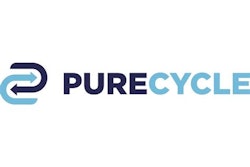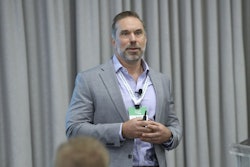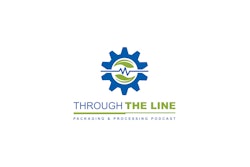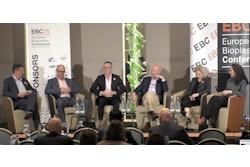
The Recycling Partnership (The Partnership) announced a $4.25 million grant to FCC Environmental Services’ materials recovery facility (MRF) in Houston, Texas, to improve its ability to recycle film and flexible packaging (FFP). The Partnership’s grant, supported by PepsiCo, Kraft Heinz, and the Film and Flexibles Recycling Coalition, will enable a facility retrofit to recover incidental FFP, address cross-contamination of other recyclable commodities, create high-quality bales, and offer key data and learnings for building a roadmap to scaling FFP recycling.
FFP plays a critical role in the food and beverage industry, providing a safe and effective barrier for products and offering convenience and extended shelf life for consumers. FFP, such as plastic bags, pouches, and wraps, makes up 34 percent of the total U.S. plastics packaging industry, yet it has an incredibly low annual recycling rate. This is largely due to the complexities of recycling FFP due to disruptions in recycling equipment and contamination of other recyclable commodities such as paper, high processing costs, and limited end-market demand, which have led to reluctance by both communities and processors to accept FFP in their local programs and facilities.
“Plastic film and flexible packaging are widely used but have historically been excluded from curbside recycling due to processing limitations and contamination concerns," said John Rabon, Vice President of Recycling at FCC. This upgrade represents an important step forward—offering Houston residents new opportunities to recycle more and reduce what ends up in the landfill. While still early, the initiative is designed to strengthen material recovery for the City of Houston and provide learnings that can help guide scalable, sustainable solutions across the country.”
Investments to build recycling infrastructure for FFP are critical as Extended Producer Responsibility (EPR) legislation has been passed in seven states, including California, the world’s fourth-largest economy, whose requirements will impact packaging supply chains nationwide. EPR is creating pressure to significantly increase the FFP recycling rate, which could lead to steep fines or potential product bans. Partnerships with companies like PepsiCo and Kraft Heinz, and facilities like FCC, are essential steps toward creating scalable solutions to help the industry meet EPR compliance requirements.
“To meet these mandates effectively, investment now in the supply chain to turn FFP into new products is critical,” said Kate Davenport, Chief Impact Officer at The Recycling Partnership. “That is why we founded the Film and Flexibles Recycling Coalition and its new CalFFlex initiative, aiming to address the long-standing challenges of FFP collection, enhance effective processing, and drive demand for these recycled materials. By awarding our largest single grant to an individual MRF, we are developing solutions to demonstrate how effective capture and higher quality at this stage of the value chain could provide feedstock for burgeoning markets to use to make new recycled products and thus provide key data to inform compliance pathways and focused interventions.”
“PepsiCo is actively seeking ways to improve the recycling system so that more of our packaging can be recycled,” says Rachael Lawrence, Sr. Director Sustainability, PepsiCo Foods North America. “Flexible packaging has many food safety and consumer benefits, but its end-of-life options remain a collective challenge for industry and governments to unlock. By investing in the Film and Flexibles Recycling Coalition and the FCC MRF project, we are helping to develop and provide proof points for successful FFP recycling that can be applied at other facilities across the U.S., allowing more of this packaging to be recycled at scale. This work, alongside our other sustainability initiatives and support for enabling policies such as well-designed EPR, are part of our longstanding efforts to deliver sustainable packaging solutions for our customers and the planet.”
"At Kraft Heinz, we acknowledge the significant impact of packaging on the environment and are designing sustainable solutions that work within the entire packaging ecosystem,” said Linda Roman, Director, Packaging R&D at Kraft Heinz. “While flexible films play a crucial role in protecting our products and preventing food waste, current recycling infrastructure is not yet equipped to handle these materials at scale. To address this challenge, we're intensifying our focus on infrastructure development and investing in organizations like The Recycling Partnership to build a future where all packaging is easily collected and recycled. We're starting here in Houston and see this as a model for cities all across America."
Through this grant, FCC Environmental Services will retrofit its Houston MRF with advanced technology to improve the recovery of plastic film. In partnership with its suppliers, FCC has designed a system intended to meet market specifications and recover plastic film at high levels of purity from a single material stream. The upgrades will include TOMRA optical sorters to distinguish film from paper and other materials, along with additional conveyors to enhance processing and efficiency.
The Partnership launched the Film & Flexibles Recycling Coalition in 2020 to convene packaging producers and the industry at large to tackle the complex challenges of flexible packaging recycling. The Coalition has deployed nearly $11 million across 25 projects to demonstrate how to increase material capture and quality, and support the incorporation of more recycled content into end market products. These efforts are part of The Partnership’s more than 100 grant-based investments in MRFs across the United States to date.

























